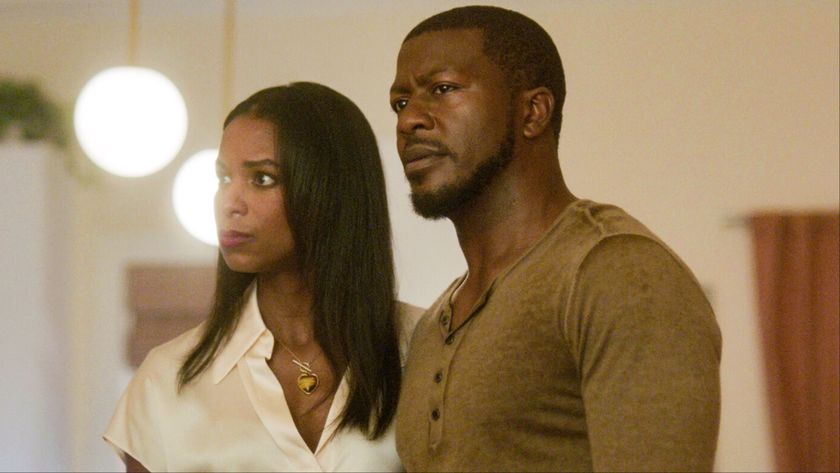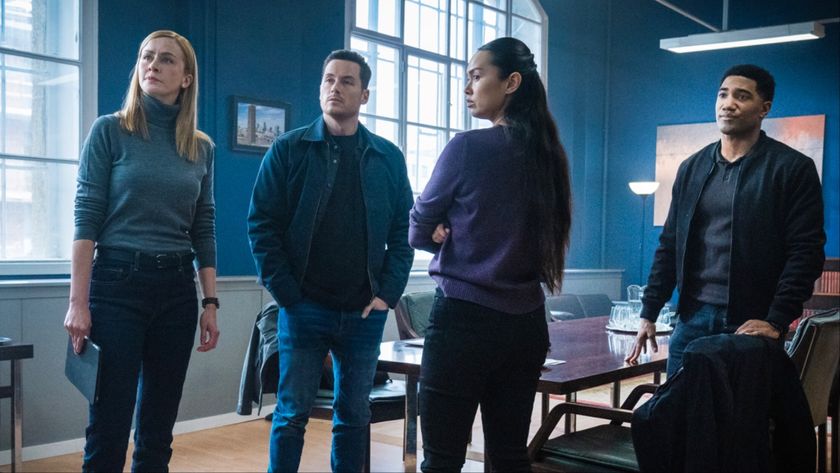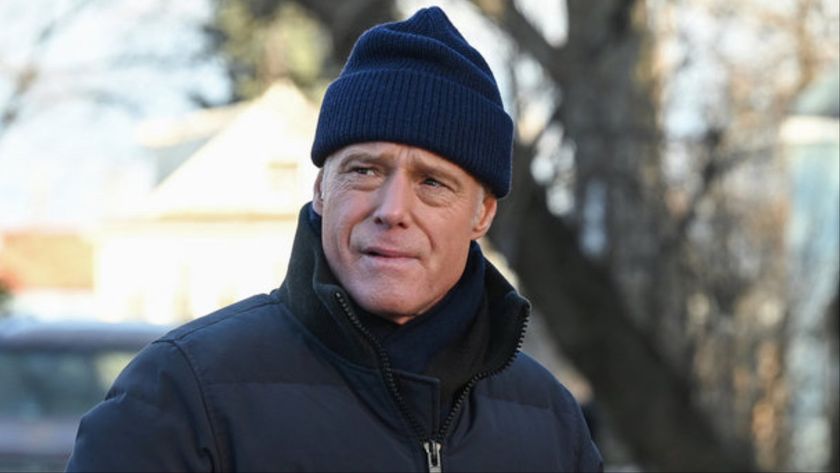Side Effects Writer Scott Z. Burns Talks The Hitchcock Influence And Pain Of Letting Things Go
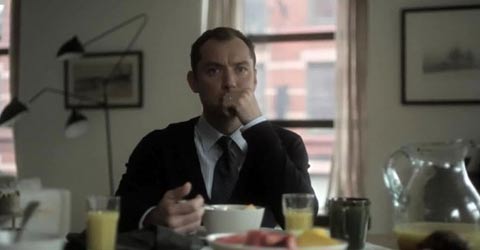
As the Master of Suspense Alfred Hitchcock had many tools in his filmmaking belt, but perhaps one of his greatest was his ability to craft empathetic lead characters who are as caught up in the mystery as the audience. In Rear Window Jimmy Stewart isn’t sure if he’s witnessed a murder or just stir crazy. In North By Northwest Cary Grant is a victim of mistaken identity and forced to go on the run from evil agents. And it’s no conincidence that similar themes appear in Scott Z. Burns’ new film Side Effects.
Last week I had the pleasure of talking with the phone with the screenwriter, and beyond chat about the Hitchcockian influence in the film, he discussed the film’s long development process, why he passed the reins to Steven Soderbergh as a director, and even a bit about his Dawn of the Planet of the Apes script. Check it out!
I know that you’ve been working on this script for a long time, and I’m always curious how greatly the final cut of a film differs from the first draft.
With a thriller I think you have to sort of stay pretty close to the script. There were things that we sort of adjusted. There were a couple of twists that developed in the last year or two that weren’t there seven years ago. So things are always evolving as you go. You add a character, you give someone a child, and then you decide they shouldn’t have a child, then you give them back the child… [laughs] So there’s always a lot of tinkering that goes on, but the basic bones of the thriller were pretty much intact from five years ago.
To kind of talk about those “basic bones,” the structure of this film is really interesting because the tone style and even arguably the genre are different in the first half compared to the second What was the greatest challenge in structuring the script that way?
Well, I think it was sort of dictated by the characters. We start out experiencing the movie through Emily’s eyes, and by the end you’re experiencing it more through Dr. Banks’ eyes. And that sort of cross-fate between those two characters is the reason for that shift in tone. And that was something that Steven [Soderbergh] and I talked about from the first time he read it because he actually asked me the same question that you just did [laughs]. And said, “Was that what you were trying to do?” And I said, “That’s exactly what I was trying to do!” – to have us experience the movie from her point of view and then slowly once he meets her, we now have to kind of go on the same ride that he does.
Was that a driving concept behind this project, an idea that you liked and wanted to implement?
CINEMABLEND NEWSLETTER
Your Daily Blend of Entertainment News
I don’t know that it was a conscious choice, I just didn’t know how to tell this kind of a story any other way – to have the audience meet a character and get to know her and then have the other sort of lead of the movie get to know her, and then see where the two of them go together. It was less of a choice of, “I’m going to try this because I think it’s really cool,” and more of, “I don’t know what I’m doing,” [laughs] which might be the best way to do this.
On the story side of things, I did feel that the film has a very strong Hitchcockian feel, largely perpetrated by the “man stuck in a mystery” element. Were you aiming at making that kind of thriller? What were your inspirations?
Well, I’m very flattered! Hitchcock was a major influence on this movie. The paranoia of Jimmy Stewart in Rear Window is something that really roused the creation of Dr. Jonathan Banks – about someone who is wondering “is what they think is happening really happening?” So that character in particular. But it was my hope in doing this to sort of create a modern noir. Because I feel like we as an industry have moved away from those movies a little bit and I really love them. And I think the world today in which we live is just as ripe for these kinds of things as we were then.
I couldn’t agree more! It came out of that post-war, dark time in America during the 1940s and 1950s, and we see a lot of those elements in society today.
That’s interesting. I’m sure you’re right. The world against which Double Indemnity is set is a world – and I don’t know this, but I’m talking about it a little bit and you might know more about this than I do [laughs]. It’s worth researching. But I think if you look at the newspapers around then I’m sure there were people figuring out ways to scam insurance companies. And usually those things do happen when there’s economic depression and people get desperate. And we all know that desperation breeds creativity [laughs].
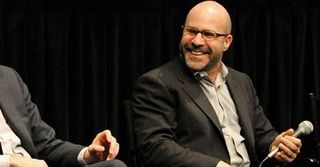
I do also want to ask you a bit about working with Steven Soderbergh, because I know the two have collaborated multiple times before. This is your third feature together, right?
It’s actually our fifth! There’s a movie that I wrote and directed called Pu-239 that I did for HBO and Steven was an executive producer on that and we spent a lot of time together talking about that. And then I did a lot of uncredited work on Ocean’s 12 as well.
I had heard that you were originally planning to direct Side Effects yourself, and obviously at some point that changed. When and why did you decide to let him direct?
It changed rather abruptly. I had been trying to get this movie going for about six or seven years, and I had financiers who went out of business, and then casts that were approved and then weren’t approved, and the kind of struggles that everyone goes through trying to make a movie. So Steven and I, after we did Contagion, he asked me to adapt The Man From U.N.C.L.E. and we were going to do this Cold War spy movie. And it was all going great and the movie was ready to go at Warner Bros. – and there were disagreements about budget. The amount of money that they were arguing over was so small that it sort of suggested to Steven and I that they didn’t really want to make the movie. Because at this point he and I were both on the same schedule, having done Informant! together and Contagion together he said, “Well, what else do you have?” No, he said, “I read a lot of scripts in the last weekend and I think the best script that I read in a long time is that Side Effects movie. I thought that was a really great idea. Would you consider letting me direct it?”
And it’s hard to let things go. The way that he asked was really very genuine and thoughtful and I had to make a choice. As a writer having a script on your computer not being made isn’t very helpful. And so the choice was fighting for another few years and still not getting the movie made, or having the movie made by someone that I knew, and trusted, and was collaborative, and who I think is incredibly talented. It became kind of easy when the goal is here to “Get shit made.” [laughs] When you see a path for that it’s a bad idea to let your own ambition and hubris get in the way. So that was a big part of it – just the practicality of wanting to see the movie get made. But also because I had such a great collaborative experience with him. It was really exciting to think that we would do another movie.
I know I’m running out of time, but what are you working on now?
Well, there is a play that I’m writing about Columbine, Steven and I are going to do it at The Public. There’s a script that I wrote, it’s an adaptation of a documentary called Deep Water that I hope is going to get made this year – it’s set up with StudioCanal and the BBC. So those are kind of the two main things right now that I’m working on. And I’m working on a new script for Fox that I’m not allowed to talk about…
Is that Dawn of the Planet of the Apes?
I already wrote that! I’m happy to talk about that. I worked with Rupert Wyatt on a draft of the script and I really love what Rupert and I did, and then Rupert left the project. And as sometimes happens when a director goes away the writer gets sent away shortly thereafter because they brought in a new team of people. So I hope that they use a lot of what we did because I was really excited about it, but I’m not involved right now. I don’t really know how it’s going to go.
The way that we were going I think was really cool and I know that it was embraced by a lot of people at the studio. I’m not sure what happened after Rupert parted ways with them.
Just out of curiosity, how heavily involved were humans in your draft? Was it mostly an ape story?
It was still very much about Caesar. It was more about apes than…well, you can’t really say that. It was, I think, a very logical extension of the first one in terms of if these apes now have the power to think and communicate, what sort of path they would be on and how they would crash into humans again.

Eric Eisenberg is the Assistant Managing Editor at CinemaBlend. After graduating Boston University and earning a bachelor’s degree in journalism, he took a part-time job as a staff writer for CinemaBlend, and after six months was offered the opportunity to move to Los Angeles and take on a newly created West Coast Editor position. Over a decade later, he's continuing to advance his interests and expertise. In addition to conducting filmmaker interviews and contributing to the news and feature content of the site, Eric also oversees the Movie Reviews section, writes the the weekend box office report (published Sundays), and is the site's resident Stephen King expert. He has two King-related columns.
Most Popular









